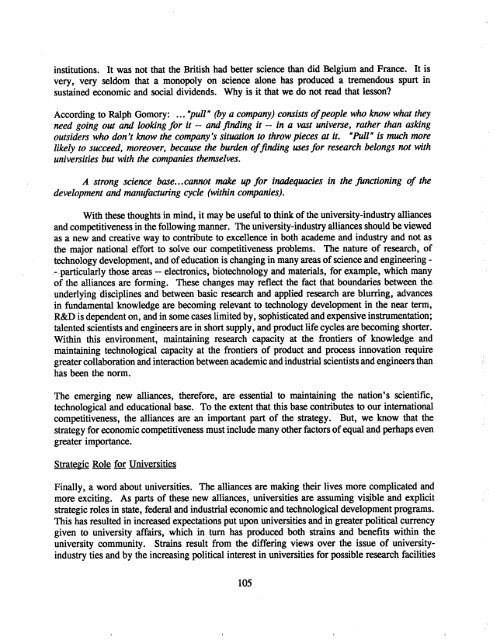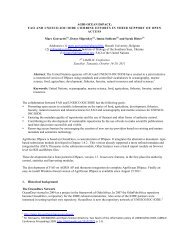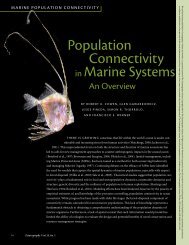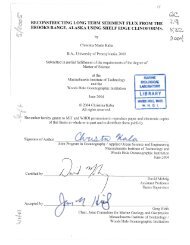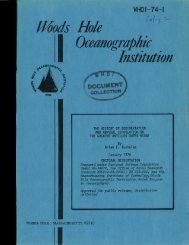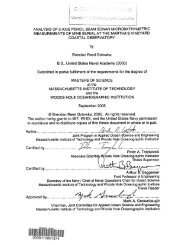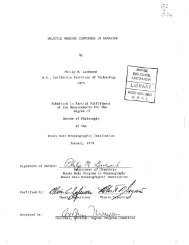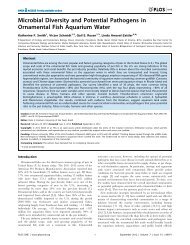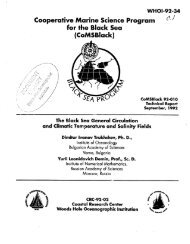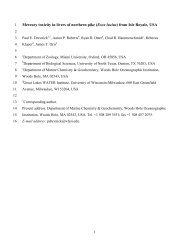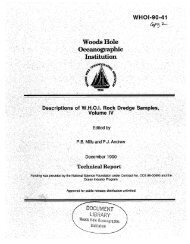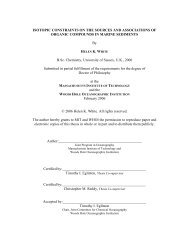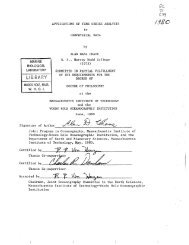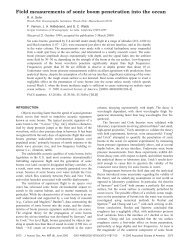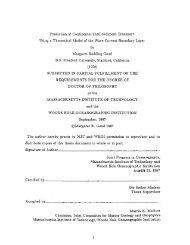WHOI-90-52
WHOI-90-52
WHOI-90-52
You also want an ePaper? Increase the reach of your titles
YUMPU automatically turns print PDFs into web optimized ePapers that Google loves.
institutions; It was not that the British had better science than did Belgium and Frace. It is<br />
very, very seldom that a monopoly on science alone has produce a tremendous spurt in<br />
sustaned ecnomic and soial dividends. Why is it that we do not read that lesson?<br />
According to Ralph Gomory: ... "pull" (b a company) consists of<br />
people who knw wha the<br />
need going out and looking for it -- and finding it -- in a vast universe, rather than asking<br />
outsiders who don't knw the company's situion to throw pieces at it. "Pull" is much more<br />
likely to succeed, moreover, because the burden of finding uses for research belongs not with<br />
universities but with the companies themselves.<br />
A strong science base...cannot ma up for inaquaies in the functioning of the<br />
development and manufacturing cycle (within companies).<br />
With these thoughts in mind, it may be useful to think of the university-industr alliances<br />
and competitiveness in the following manner. The university-industr alliances should be viewed<br />
as a new and creative way to contrbute to excellence in both academe and industry and not as<br />
the major national effort to solve our competitiveness problems. The nature of resech, of<br />
technology development, and of education is changing in many areas of science and engineering -<br />
-parcularly those areas -- electronics, biotechnology and materials, for example, which many<br />
of the alliances are forming. These changes may reflect the fact that boundaes between the<br />
underlying disciplines and between basic resech and applied resech are blurrng, advances<br />
in fundamenta knowledge are becoming relevant to tehnology development in the nea term,<br />
R&D is dependent on, and in some cases limited by, sophisticate and expensive instrmentation;<br />
taented scientists and engineers are in short supply, and product life cycles are becming shortr.<br />
Within ths environment, maintaning resech capacity at the frontiers of knowledge and<br />
maintaning technologica capacity at the frontiers of product and procss innovation require<br />
greater collaboration and interaction between academic and industral scientists and engineers than<br />
has been the norm.<br />
The emerging new alliances, therefore, are essential to maintaing the nation's scientific,<br />
tehnologica and educational base. To the extent that this base contrbutes to our international<br />
competitiveness, the alliances are an importt par of the strtegy. But, we know that the<br />
strategy for ecnomic competitiveness must include many other factors of equal and perhaps even<br />
greater importce.<br />
Strategic Role for Universities<br />
Finally, a word about universities. The alliances are makng their lives more complicate and<br />
more exciting. As pars of these new alliances, universities are assuming vi~ible and explicit<br />
strategic roles in state, federa and industral economic and tehnologica development programs.<br />
This has resulted in increase expetations put upon universities and in greater politica currency<br />
given to university affais, which in turn has produce both strs and benefits within the<br />
university community. Strns result from the differing views over the issue of universityindustr<br />
ties and by the increasing politica interest in universities for possible resech facilties<br />
105


